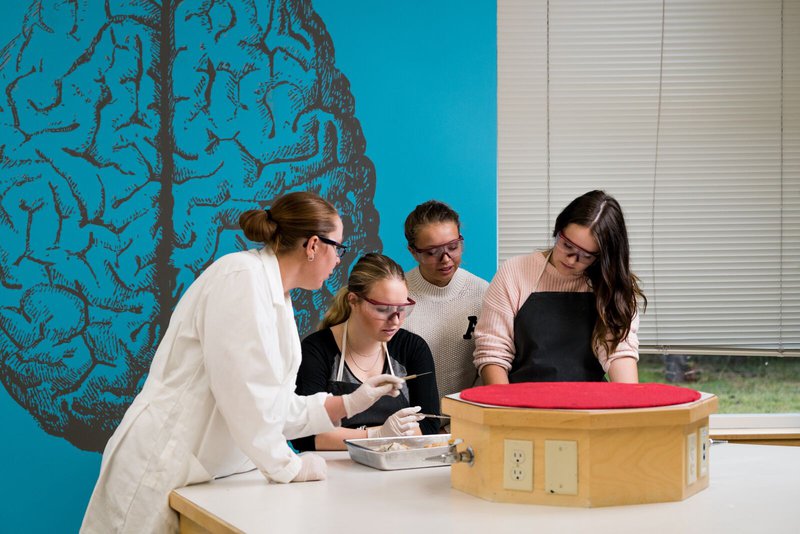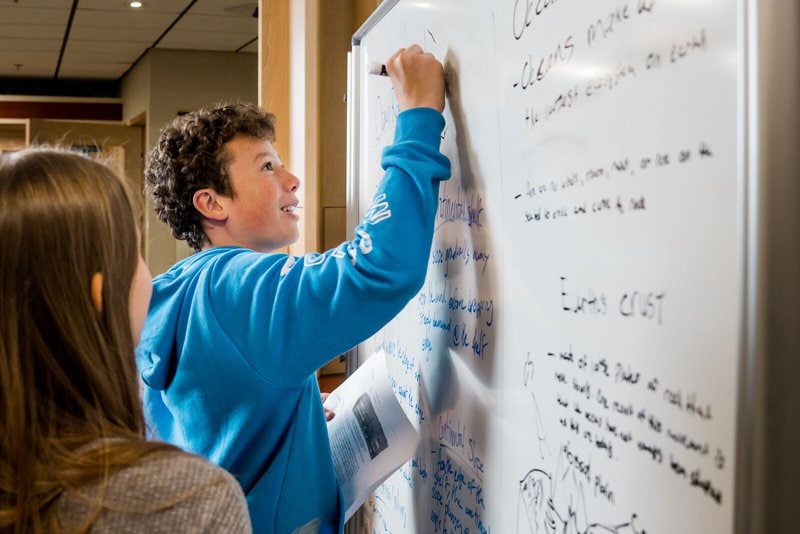Where does passion come from? Passion can be defined in a couple of ways; one is an expression of strong emotion towards something you like to do and the other is an area of deep interest. At Master’s, students are given choice to create projects in areas of personal interest. We call these “passion projects”. Good pedagogical practice, based on neuroscience, has shown that student achievement is amplified when the learning takes place in a context that is meaningful and of interest to the student. We all know that if we are passionate about a particular subject then motivation to learn is seldom a problem.


Carol Dweck, after decades of research, writes in her book, Mindset: The New Psychology of Success (2007), how success in school, work, sports, the arts, and almost every area of human endeavour can be dramatically influenced by how we approach our goals. People with a fixed mindset—those who believe that abilities are fixed—are far less likely to flourish than those with a growth mindset—those who believe that abilities can be developed through hard work, good strategies, and mentorship.
A new study by Stanford researchers Carol Dweck and Gregory Walton, among other scholars, suggests that spending effort developing one’s passion is more effective than looking for one’s true passion. Their research investigated the impact of having a “fixed mindset” versus a “growth mindset” on a person’s passion area. “Are interests there all along, waiting to be revealed?” the researchers ask. “Or must a spark of interest be cultivated through investment and persistence?”
Ephrat Livni, reviewing Dweck’s teams research, wrote in Quartz, “Your passion isn’t out there, waiting to be discovered. It’s not a mysterious force that will—when found—remove all obstacles from your path. In fact, psychologists argue in a new study that the pithy mantra “find your passion” may be a dangerous distraction.”
It is not surprising the research shows that having a growth mindset will cause students to maintain a higher degree of interest and motivation when challenges arise.
At Master’s, by intentionally cultivating a “growth mindset”, students are able to engage more deeply in exploring new subject matter that may not initially fit their “declared passion areas”. Since new passion areas can be developed it is important that our students do not limit their own development by adopting a “fixed mindset” about their interests. But how does this fit our concept of finding your “Big WHY”?

Developing Passion Areas and the Big WHY
At Master’s College, students are introduced to the Five Keys of becoming an Imaginal Leader as described in, Becoming Imaginal, Seeing and Creating the Future of Education. The first key, finding your “Big WHY”, is an emergent property that takes into account your identity, your passions and gifts, your purpose for life, the cause you feel connected with, and the dream you have for advancing that cause. Your “Big WHY” is a unique calling to make a difference in your world that grows over time. It is a spiritual connection that creates a sense of destiny for your life. Using a farming metaphor, having a “growth mindset” towards developing passion areas creates the soil conditions into which the “seed” or “Big WHY” is planted. Other important ingredients such as faith, hope and love are needed to nurture the growth of your “Big WHY”. For most people finding their “Big WHY” while in their teens is not likely to happen, although they may get glimpses of it. However we can prepare the “soil” for this to emerge in the future.

Our stated mission is to graduate students who have become “Imaginal Leaders”, those who carry an orientation towards making a difference in their world–who have something bigger than themselves at the centre of their lives. We have developed a unique Imaginal Design Program in our high school, where students are challenged to deploy a “growth mindset” in becoming seers of, learners from and creators of the future. Students are given “Imaginal Bold Challenges” designed to develop these Imaginal abilities as well as their conviction that they can make a difference in their world.
How do we live a life that is extraordinary, that is fulfilling in the truest and deepest sense of the word? Fulfillment is not defined by how much money you earn, or by the size of your house or bank account, it is about significance—the impact that you are making in your world. Steve Jobs, when he was recruiting a new CEO for Apple, challenged John Scully from Pepsi Cola, “Do you want to sell sugar water the rest of your life or do you want to join Apple and make a dent in the universe?”
Tom Rudmik, Becoming Imaginal, Seeing and Creating the Future of Education
